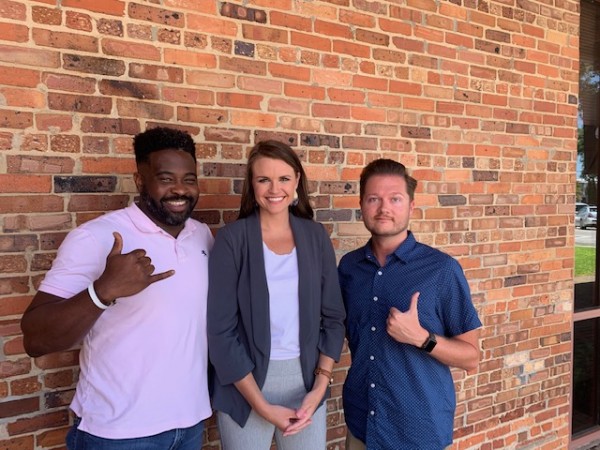16 Takeaways from the Pensacola Podcast PanelMandy Fernandez and Kathy Bowers - July 2019

Today's FPRA’s podcast panel included Kelley Rowland of The Balance Podcast, Derek Diamond of The Derek Diamond Experience Podcast and Ramsey Coates of WE ARE WED TALKS Podcast. Together they shared insights, personal podcasting experiences and helpful resources on how to start, create and maintain a podcast.
Here are 16 takeaways to keep in mind when it comes to podcasting:
- There is a learning curve so allow time to educate yourself on editing, sound, music, uploading and more.
- Choose your podcasting host site carefully as that will determine how your podcast is pushed out to sites like Spotify, iTunes, etc. Panelists mentioned Buzzsprout, Libsyn and Garageband as a few examples to research. (See more resources on takeaway # 13).
- Keep in mind how you’re going to market your podcast and what platforms you will use to do so. Build in time for marketing as that can often take two to three times as long as making/editing the podcast will be.
- Be as niche as possible. Don’t try to be too general or appeal to all audiences. Be as specific and narrow as you can about the topic or genre you are passionate about.
- Choose content wisely, and be engaged and passionate about your topic. Network with local groups who share your interest/genre/topic so you can bring them on as guests or help promote each other’s work.
- Record podcasts in batches. All three panelists said they will record anywhere from four to 10 podcasts back to back or within the same day to save time. Then they take time editing and spreading them out over a series of weeks, months or even a year.
- Post a series of podcasts at a time. (Ideally, you should promote three or four at a time!) Never, ever just publish one podcast with no other podcasts to reference or provide further listening.
- Create a teaser one minute or less podcast/audio clip to help promote your podcast ahead of time.
- Never stop talking about your podcast and sharing it with others. Do shameless self-plugging to help get the word out and build followers.
- Create a subscribers list/email list so you can capture the audience and email them when a new podcast becomes available.
- Focus marketing efforts on one media platform (Just Facebook, or Twitter for example). Do that really well before you branch out to others. Have one place to point all platforms to, such as your website.
- Podcast length varies in time but most that hold audience attention are between 20 and 30 minutes. Some can go longer but successful ones are typically under one hour.
- Software, sites and resources mentioned that can be helpful with podcasting:
- Skype for doing over the phone guest interviews
- Talkhelper call recording software, used with Skype
- Zoom for recording audio
- Facebook Live to create a video of your recording
- Wavve for audio clips for podcasts
- Audacity for podcast recording and editing
- Blue Yeti USB Microphone to record podcast
- Blue Snowball USB Microphone to record podcast
- Consider videotaping the podcast if you have the skills because many people listen to their podcasts on their computers so you need a visual.
- Transcribe the podcast so you can pull portions of it to use for messaging in other platforms (print, social media, etc.)
- Be as specific as possible in crafting the title of your podcast episode for SEO. Use keywords that relate to what is discussed within the episode, not just the general topic.
Thank you to our panel for the great information shared. Did you attend the meeting and gain another takeaway worth sharing? How do you plan to start a podcast or rebrand your current one? Share with us what you found useful and will be doing in your professional or personal endeavors.
Join us for our next FPRA meeting on August 15 so we can continue #CreatingImpact.